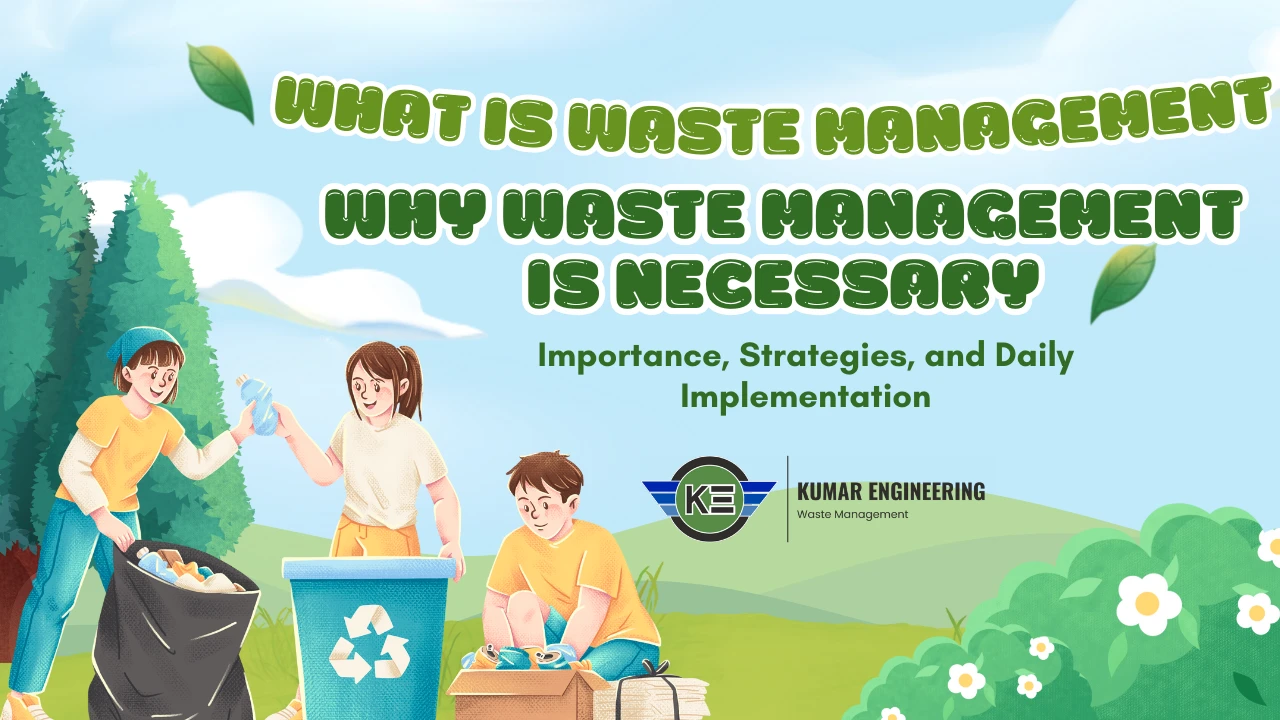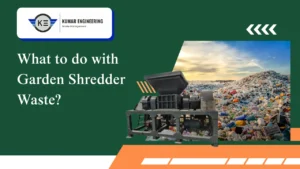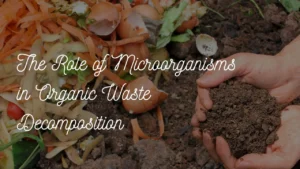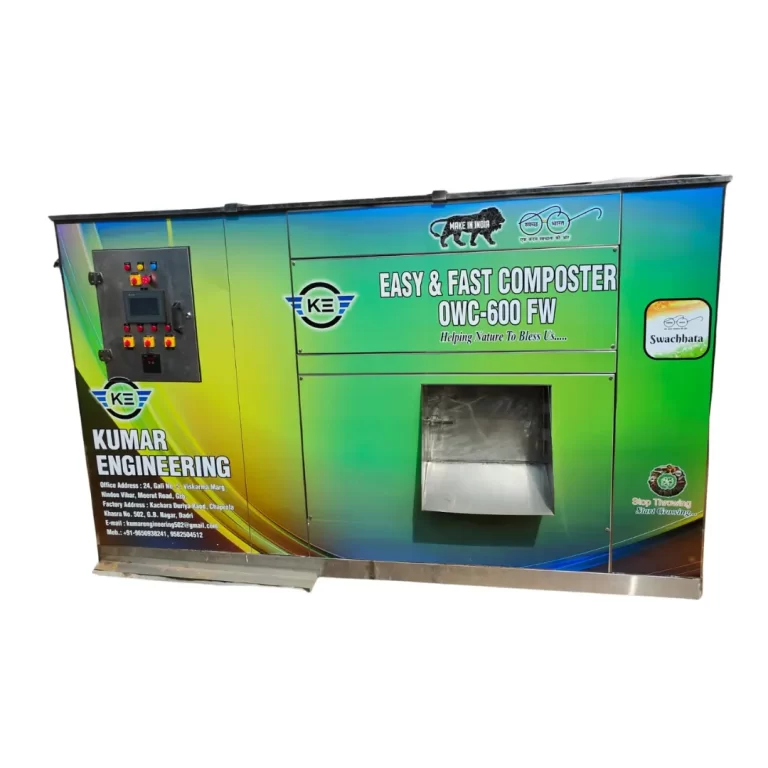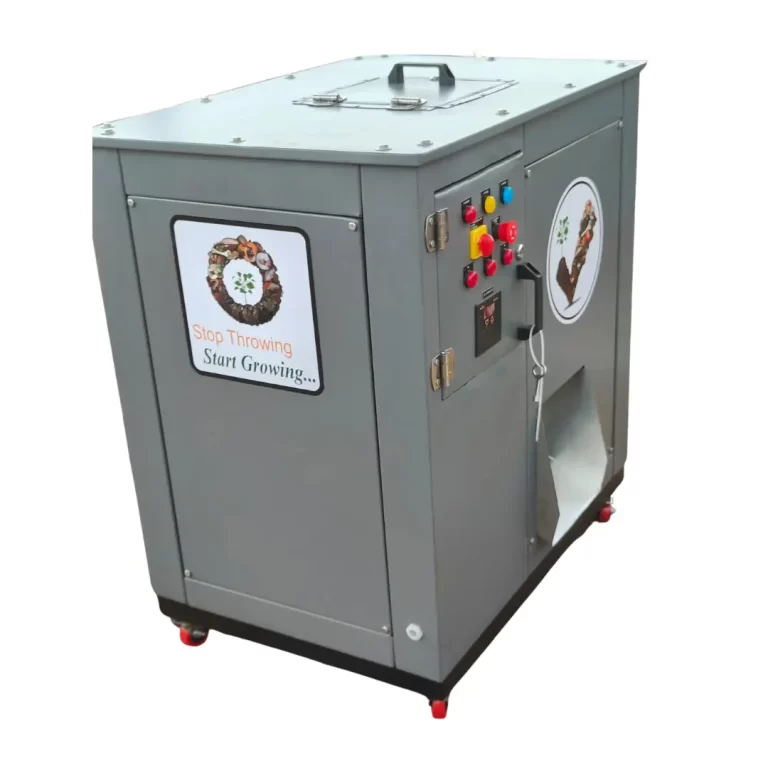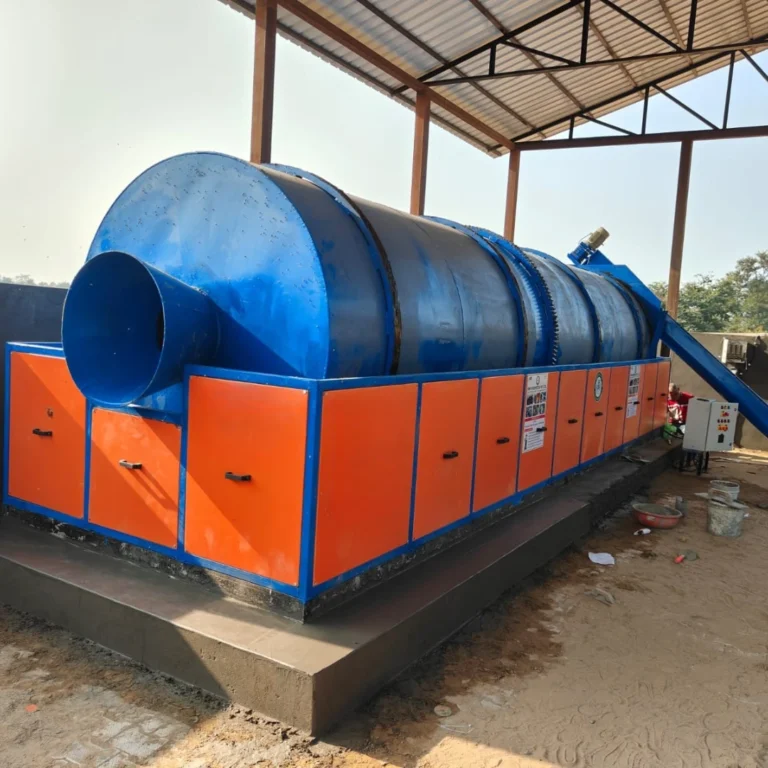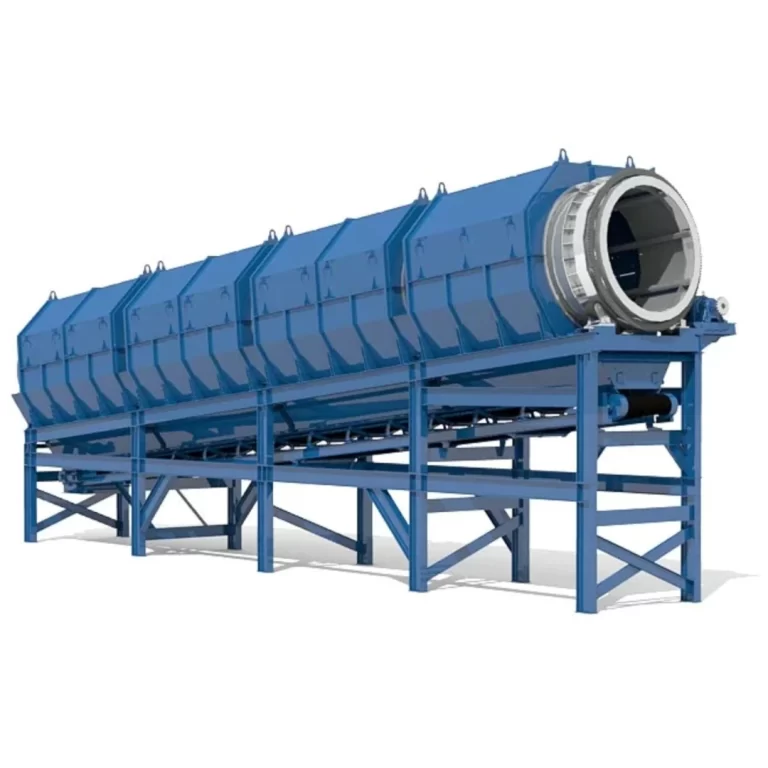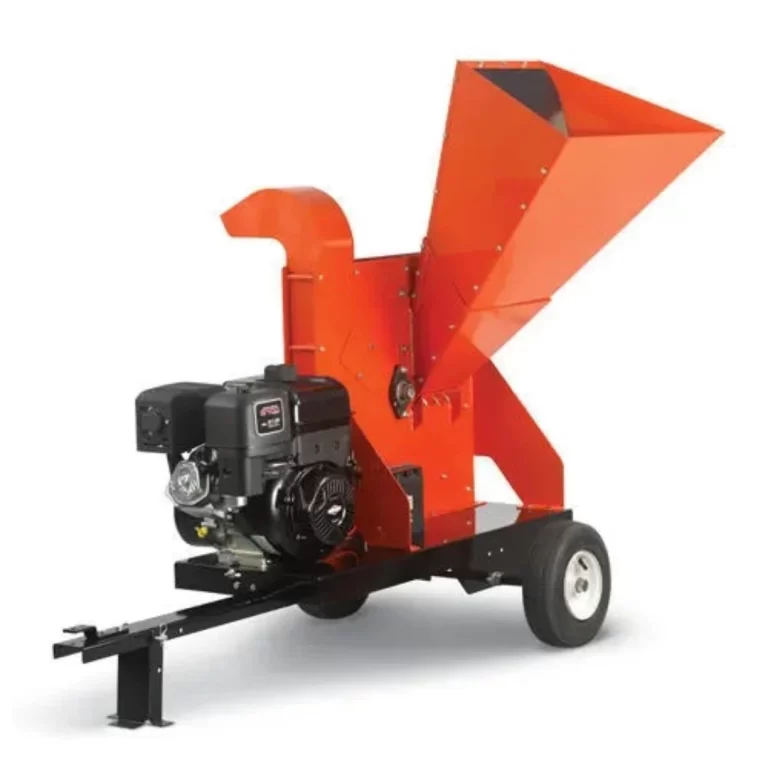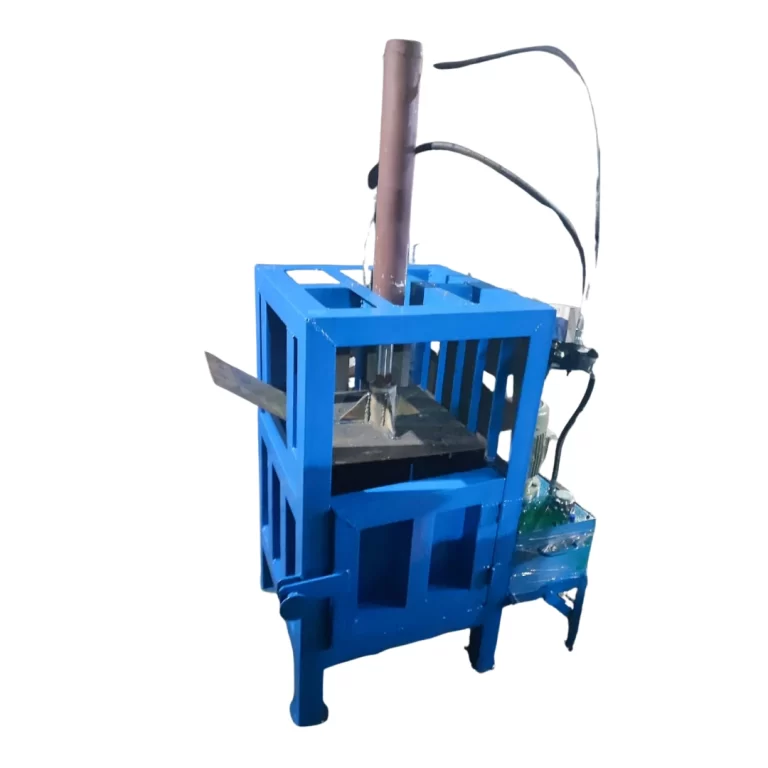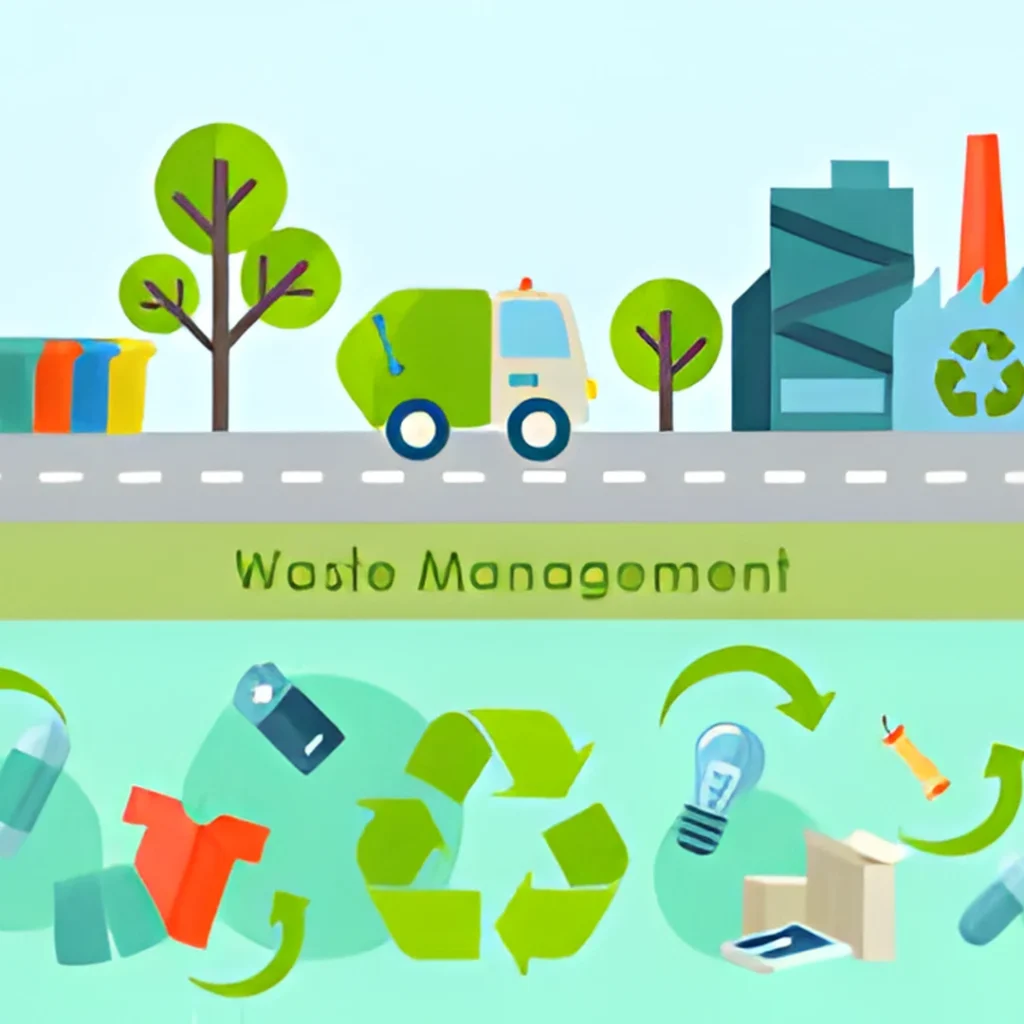In today’s times, when industrialization and urbanization are rapidly increasing, waste management has become a major challenge. Every day, millions of tons of waste are generated from homes, offices, hospitals, factories, and markets. If this waste is not managed properly, it can cause serious problems such as pollution, disease, and resource depletion. That is why proper waste management has become a necessity for every society and business today. In this blog, we will explain what is waste management and why waste management is important.
What is Waste Management – Definition
Waste Management is the process of collecting, transporting, treating, recycling, and disposing of waste materials in a safe and efficient manner to reduce their harmful impact on the environment, human health, and society.
It includes methods like segregation, recycling, composting, incineration, and waste-to-energy, with the goal of minimizing pollution, conserving resources, and promoting sustainability.
Why Waste Management is Important
Waste management plays an important role in controlling these issues by ensuring proper collection, recycling, and disposal of waste. It not only protects the environment but also promotes sustainability, making it an essential practice for a cleaner and healthier future. Today, along with development in all areas, the problem of waste management is also increasing. We should pay special attention to why waste management is necessary.
Importance of Waste Management
1. Environmental Protection
One of the most significant reasons why waste management is important is its role in protecting the environment. Improper waste disposal can lead to landfills, open dumping, and burning, all of which pollute soil, water, and air. Recycling reduces the demand for raw materials, thereby conserving forests, water bodies, and other natural resources.
2. Public Health & Hygiene
Uncollected and untreated waste can become a breeding ground for mosquitoes, flies, and other disease-carrying organisms. This can cause widespread diseases in communities. Proper waste management ensures a clean and safe living environment, improving the overall quality of life.
3. Resource Conservation
A large portion of waste can be recycled or reused. For example, plastics can be reprocessed into new materials, and organic waste can be turned into compost or biogas. This reduces dependency on raw resources and supports a circular economy.
4. Economic Benefits
Waste management is not just about disposal; it also opens up opportunities for businesses. Recycling plants, composting facilities, and waste-to-energy projects generate employment and revenue. Businesses can also save money by reducing waste, reusing materials, and improving efficiency.
5. Sustainability and Climate Change Mitigation
Sustainability is no longer a choice; it is a global priority. Proper waste management reduces greenhouse gas emissions, lowers energy consumption, and contributes to global climate goals. It allows present generations to meet their needs without compromising the future.
Modern Methods of Waste Management
- Segregation at Source – Separating biodegradable and non-biodegradable waste at household or industrial levels.
- Recycling & Reuse – Converting waste materials into new products to reduce raw material consumption.
- Composting – Using organic waste to produce compost, which acts as a natural fertilizer.
- Incineration – Controlled burning of waste to reduce volume and sometimes generate energy.
- Waste-to-Energy – Advanced facilities convert waste into electricity or fuel.
- Landfills with Treatment – Modern engineered landfills reduce the harmful impact of dumping waste by using protective layers and treatment methods.
Benefits of Waste Management:
- Protects Environment – Reduces air, water, and soil pollution by safe disposal of waste.
- Conserves Resources – Recycling saves raw materials like wood, metals, and water.
- Saves Energy – Making products from recycled materials requires less energy.
- Generates Renewable Energy – Organic waste can be converted into biogas and electricity.
- Economic Benefits – Creates jobs in recycling and waste processing industries.
- Improves Health & Hygiene – Proper waste disposal prevents spread of diseases.
- Reduces Greenhouse Gases – Less landfill waste means lower methane and CO₂ emissions.
- Increases Landfill Life – Reduces the volume of waste going into landfills.
- Clean & Attractive Surroundings – Proper waste management keeps cities neat and pleasant.
- Supports Sustainability – Encourages responsible use of resources for future generations.
Future of Waste Management
As population and industries grow, the challenge of waste management will continue to increase. However, with advanced technologies, public awareness, and contributions from companies like Kumar Engineering, the future looks more sustainable.
- Smarter recycling technologies.
- Waste-to-energy plants at larger scales.
- Community-driven waste segregation.
- Increased use of compactors and balers.
- Digital waste tracking systems.
Role of Industries in Waste Management
Industries are among the largest producers of waste, but they also play an important role in solutions. From manufacturing food waste composting machines, baling machines, shredders, and recycling equipment to setting up large-scale treatment plants, industries are actively contributing to efficient waste handling.
Kumar Engineering – A Trusted Name in Waste Management Solutions
When it comes to reliable and advanced waste management equipment, Kumar Engineering stands out as one of the leading Food waste composting machine manufacturers. With years of expertise and innovation, the company provides modern solutions that make waste handling more efficient, eco-friendly, and cost-effective.
Why Choose Kumar Engineering?
- Wide Range of Products – From hydraulic baling machines to shredders and compactors, Kumar Engineering offers a complete range of waste management equipment.
- Quality & Durability – All machines are built with strong materials and advanced technology to ensure long-lasting performance.
- Eco-Friendly Designs – Equipment is designed to reduce energy consumption and encourage recycling.
- Customized Solutions – The company provides machines tailored to the specific needs of industries, warehouses, and recycling units.
- Strong After-Sales Support – Professional installation, training, and service support make them a trusted choice.
Waste management is not just about garbage disposal; it’s also about protecting the environment, conserving resources, public health, and sustainable development. Properly managed waste management ensures a cleaner and safer today and tomorrow.
Industries like Kumar Engineering are taking a strong step in this direction, providing innovative solutions to both businesses and society through cutting-edge waste management equipment. Our machine offers an efficient and reliable solution with best performance. If you looking for any type of waste management machine like a mix waste shredder, fatka machine, baling machine, wood chipper machine etc.

